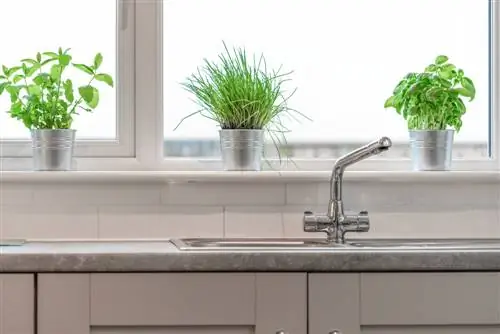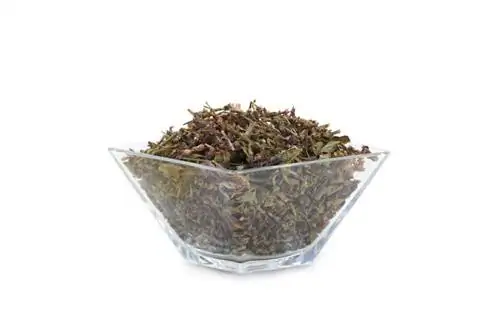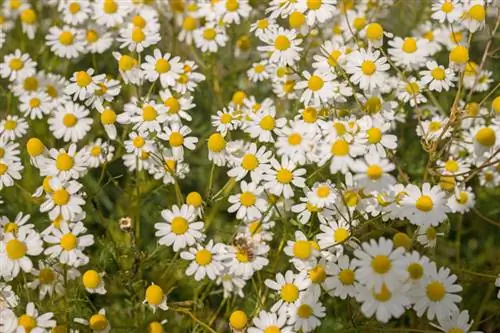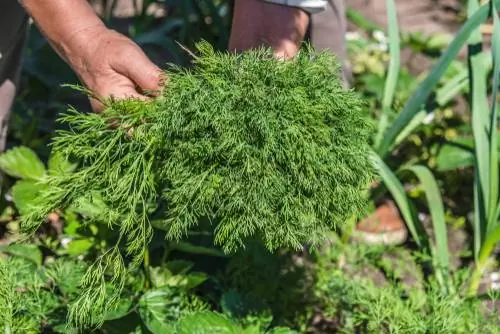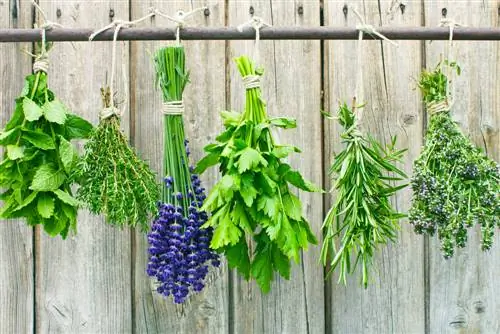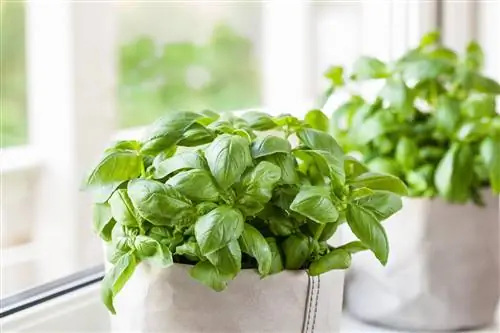- Author admin leonars@hobbygardeners.com.
- Public 2023-12-16 16:46.
- Last modified 2025-06-01 06:02.
Herb lovers who neither have a garden nor a balcony to grow them need not despair. Because the aromatic kitchen refiners can also be grown well on the windowsill. We'll show you how in this article.
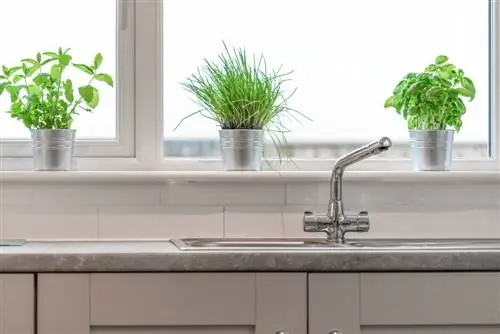
How can I create a herb bed on the windowsill?
A herb bed on the windowsill is ideal for Mediterranean herbs on south/west windows and for native varieties such as chives and parsley on north/east windows. Indoor and outdoor window sills influence the aroma of the herbs and their overwintering options.
Herbs on the window - but in the right place
Of course, for herbs that you want to use to refine dishes, it is most practical to cultivate them on the windowsill in the kitchen. But if you want to use them for longer than just 3-4 weeks, you should choose the window sill based on its orientation.
Because if your kitchen window faces north or east, you can only grow a few partial to shade-compatible varieties such as chives, lovage, parsley or basil. Most other species, especially of course the Mediterranean herbs, need a location facing south or at least west.
So:
- Orientation of the window sill is crucial for the cultivation success of various types of herbs
- for Mediterranean herbs: south/west window
- For soft-leaved, native varieties, north/east windows are also possible
The best way to plant your windowsill herbs is in individual pots, but also in a rectangular plant bowl or balcony box.
Inside or outside window sill?
Whether you place your herbs on the inside or outside of the window pane is essential for preserving the aroma. In a heated room with comparatively little air exchange, the herbs lose their flavor intensity and valuable ingredients much more quickly. So leave them outside as long as possible.
Wintering
Of course, only perennial herbs such as parsley, marjoram, rosemary, lemon balm, sage or tarragon can be overwintered anyway. However, during the winter months they should not be kept too warm - the choice between a location that is too cold outside and a location that is too warm inside can become tricky. A wintering temperature of 5°C is ideal for most varieties. If the temperatures outside are severely below zero, you can also cover the plants with fir branches or jute cloth.
Close care
The small window sill culture space and the necessarily small planters require a little closer attention. Because in small pots and where the light, air and temperature conditions tend to be one-sided, the herbs are more sensitive to waterlogging and pests. This makes it easier for them to rot or get lice. This is especially true for non-Mediterranean herbs - these are fairly resistant to pests because of their essential oils. So water as regularly as possible without excess and treat any pest infestation immediately.

